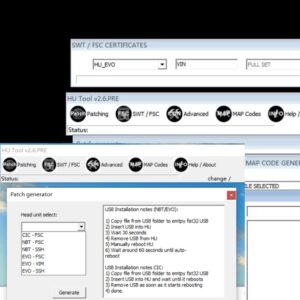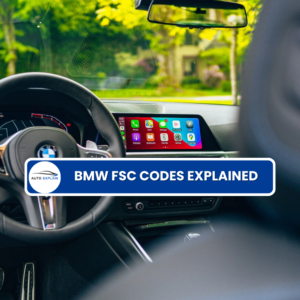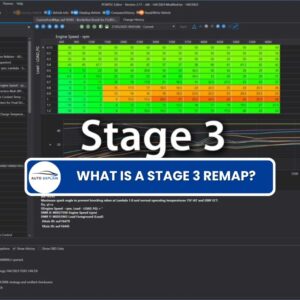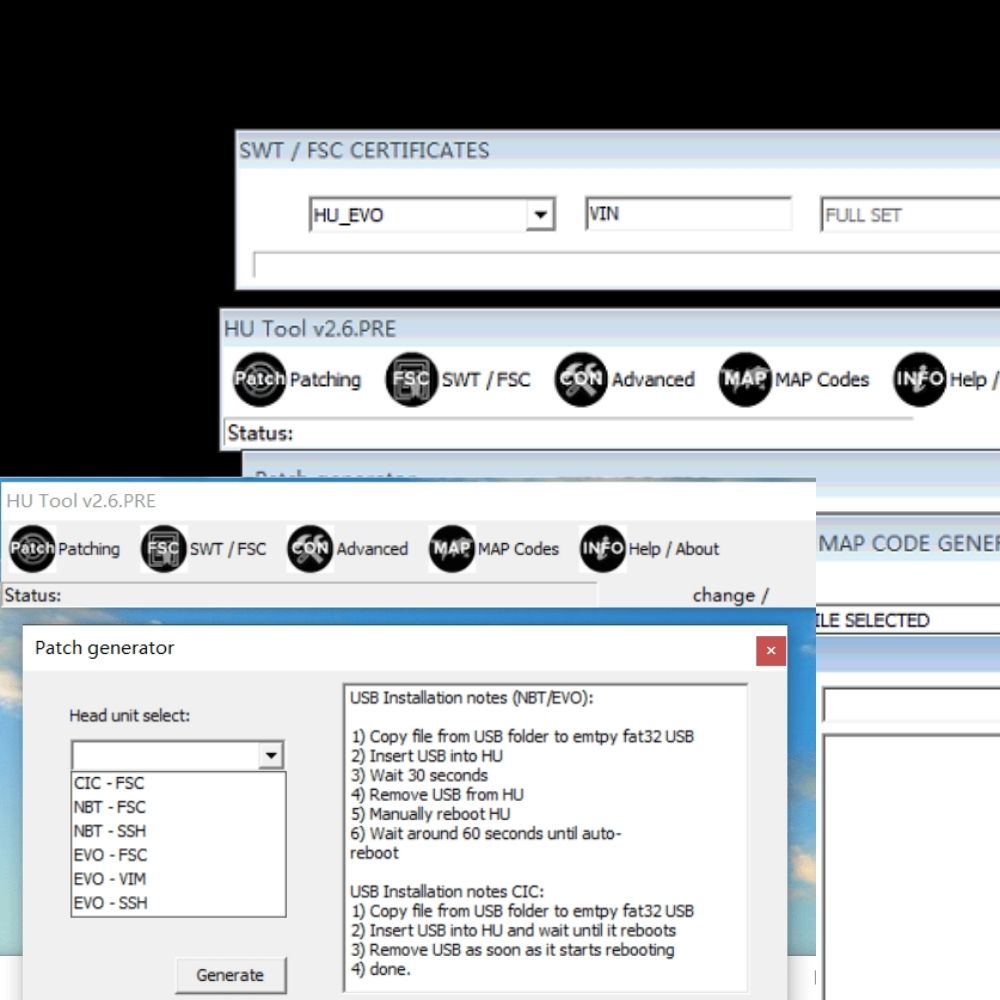
What Does The 2D52 BMW Code Really Mean?
The 2D52 BMW code indicates a super knocking issue detected by the Engine Control Unit (ECU). AutoExplain.com offers comprehensive diagnostics and remote support to pinpoint the root cause and implement effective solutions, ensuring your BMW runs smoothly. Contact us via WhatsApp at +1(936)2896695 or email at [email protected] for expert assistance.
Table of Contents
Toggle1. What is the 2D52 BMW Code?
The 2D52 BMW code signifies “DME: Super knocking”. This means the Digital Motor Electronics (DME), BMW’s engine control unit, has detected unusually severe engine knocking, also known as detonation. Engine knocking is an abnormal combustion process where the air-fuel mixture ignites spontaneously instead of burning smoothly from the spark plug ignition. This can lead to engine damage if not addressed promptly.
1.1 What Does DME Stand For?
DME stands for Digital Motor Electronics. It’s the engine control unit (ECU) in BMW vehicles, responsible for managing various engine functions, including fuel injection, ignition timing, and emissions control. The DME monitors sensor data to optimize engine performance and prevent damage.
1.2 What is Super Knocking?
Super knocking is a severe form of engine knocking or detonation. It occurs when the air-fuel mixture in the cylinder ignites in an uncontrolled manner, creating intense pressure waves that can damage engine components like pistons, connecting rods, and cylinder heads. Super knocking is more destructive than regular knocking and requires immediate attention.
2. What are the Common Causes of the 2D52 BMW Code?
Several factors can trigger the 2D52 BMW code. Here’s a breakdown of the most common causes:
- High Compression Ratio: Modified engines with increased compression ratios are more prone to knocking.
- Faulty Knock Sensor: A malfunctioning knock sensor might not accurately detect engine knocking, leading to false positives or failures in detecting real knocking events.
- Poor Fuel Quality: Using low-octane fuel can cause premature detonation.
- Carbon Buildup: Excessive carbon deposits in the combustion chamber can increase compression and create hot spots, leading to knocking.
- Lean Air-Fuel Mixture: A lean mixture can raise combustion temperatures, increasing the risk of detonation.
- Over-Advanced Ignition Timing: If the ignition timing is set too far in advance, the mixture can ignite prematurely.
- Turbocharger Issues: Overboosting or other issues with the turbocharger can lead to excessive cylinder pressure and knocking.
- Engine Overheating: High engine temperatures can increase the likelihood of knocking.
- Injector Problems: Dirty or faulty fuel injectors can disrupt the fuel spray pattern, causing uneven combustion and knocking.
- Vacuum Leaks: Leaks in the vacuum system can alter the air-fuel mixture, leading to knocking.
- Boost Leaks: Leaks in the intake system after the turbo, which can cause a lean condition
- PCV System Issues: A faulty PCV system can cause oil to enter the combustion chamber.
3. How Do I Diagnose the 2D52 BMW Code?
Diagnosing the 2D52 BMW code requires a systematic approach. Here’s a step-by-step guide:
-
Read the Fault Codes: Use an OBD-II scanner to confirm the 2D52 code and check for any other related codes.
-
Inspect the Knock Sensor: Check the knock sensor for damage or loose connections. Use a multimeter to test its resistance and signal output.
-
Evaluate Fuel Quality: Ensure you are using the correct octane fuel recommended for your BMW. If in doubt, try a higher octane fuel.
-
Check for Carbon Buildup: Inspect the intake valves and combustion chambers for excessive carbon deposits. Consider a walnut blasting service to remove buildup.
-
Assess Air-Fuel Mixture: Use a scan tool to monitor the air-fuel ratio. Look for lean conditions that could cause knocking.
-
Verify Ignition Timing: Check the ignition timing to ensure it is within the manufacturer’s specifications.
-
Examine Turbocharger System: Inspect the turbocharger for signs of overboosting, leaks, or damage.
-
Monitor Engine Temperature: Ensure the engine is not overheating. Check the coolant level and cooling system components.
-
Test Fuel Injectors: Check the fuel injectors for proper spray pattern and flow rate. Clean or replace injectors as needed.
-
Check for Vacuum Leaks: Use a smoke tester to identify any vacuum leaks in the intake system.
-
Check for Boost Leaks: Perform a boost leak test to confirm that there are no leaks in the system.
-
Inspect PCV System: Check the PCV valve and hoses for blockages or leaks.
3.1 What Tools Are Needed for Diagnosis?
To diagnose the 2D52 BMW code effectively, you’ll need the following tools:
- OBD-II Scanner: To read and clear fault codes.
- Multimeter: To test electrical components like the knock sensor.
- Fuel Pressure Tester: To check fuel pressure.
- Compression Tester: To evaluate cylinder compression.
- Smoke Tester: To find vacuum leaks.
- Scan Tool with Live Data: To monitor engine parameters in real-time.
- Boost Leak Tester: To pressurize the intake system to check for leaks.
3.2 Can I Diagnose the 2D52 BMW Code Myself?
While some aspects of the diagnosis, such as checking fuel quality or looking for obvious vacuum leaks, can be done by vehicle owners, a comprehensive diagnosis often requires specialized tools and expertise. AutoExplain.com offers remote diagnostic services to assist you in accurately identifying the root cause of the 2D52 code.
4. How Do I Fix the 2D52 BMW Code?
The solution to the 2D52 BMW code depends on the underlying cause. Here are several potential fixes:
-
Use High-Octane Fuel: Switch to a higher octane fuel to prevent premature detonation.
-
Replace Knock Sensor: If the knock sensor is faulty, replace it with a new one.
-
Clean Carbon Buildup: Perform a walnut blasting service to remove carbon deposits from the intake valves and combustion chambers.
-
Adjust Air-Fuel Mixture: Correct any lean conditions by addressing vacuum leaks, faulty injectors, or sensor issues.
-
Correct Ignition Timing: Adjust the ignition timing to the manufacturer’s specifications.
-
Repair Turbocharger System: Fix any issues with the turbocharger, such as overboosting or leaks.
-
Address Engine Overheating: Resolve any cooling system problems to lower engine temperatures.
-
Clean or Replace Fuel Injectors: Clean or replace dirty or faulty fuel injectors.
-
Repair Vacuum Leaks: Fix any vacuum leaks in the intake system.
-
Repair Boost Leaks: Fix any leaks in the intake system.
-
Repair PCV System: Replace any faulty components in the PCV system.
4.1 What is Walnut Blasting?
Walnut blasting is a cleaning process used to remove carbon deposits from intake valves. It involves blasting the valves with crushed walnut shells, which effectively remove carbon without damaging the valve surfaces.
4.2 How Often Should I Perform Walnut Blasting?
The frequency of walnut blasting depends on driving conditions and fuel quality. Generally, it is recommended every 30,000 to 50,000 miles to maintain optimal engine performance.
5. What are the Risks of Ignoring the 2D52 BMW Code?
Ignoring the 2D52 BMW code can lead to serious engine damage. Continuous knocking can cause:
- Piston Damage: Knocking can crack or break pistons.
- Connecting Rod Damage: Excessive pressure can bend or break connecting rods.
- Cylinder Head Damage: The cylinder head can crack or warp due to extreme temperatures and pressures.
- Bearing Damage: Main and rod bearings can wear out prematurely.
- Complete Engine Failure: In severe cases, continuous knocking can lead to catastrophic engine failure.
6. Can AutoExplain.com Help with the 2D52 BMW Code?
Yes, AutoExplain.com specializes in diagnosing and resolving complex automotive issues like the 2D52 BMW code. Our services include:
- Remote Diagnostics: We can remotely access your vehicle’s diagnostic data to pinpoint the exact cause of the problem.
- Step-by-Step Repair Guidance: We provide detailed, step-by-step instructions to help you or your mechanic perform the necessary repairs.
- Software Updates: We offer software updates for your vehicle’s ECU to optimize performance and prevent future issues.
- Expert Support: Our team of experienced technicians is available to answer your questions and provide expert advice.
- ECU Programming: We provide remote ECU programming services.
- TCM Programming: We provide remote TCM programming services.
- BCM Programming: We provide remote BCM programming services.
6.1 How Does AutoExplain.com’s Remote Diagnostic Service Work?
Our remote diagnostic service is simple and effective:
- Contact Us: Reach out to us via WhatsApp at +1(936)2896695 or email at [email protected] with details about your vehicle and the 2D52 code.
- Connect: We will guide you through connecting a compatible diagnostic tool to your vehicle.
- Diagnose: Our technicians remotely access your vehicle’s data to perform a comprehensive diagnosis.
- Solution: We provide a detailed report with recommended solutions and step-by-step repair instructions.
6.2 What are the Benefits of Using AutoExplain.com?
Using AutoExplain.com offers several advantages:
- Expertise: Access to experienced BMW technicians.
- Convenience: Remote diagnostics save you time and money.
- Accuracy: Precise diagnosis reduces the risk of unnecessary repairs.
- Support: Ongoing support throughout the repair process.
7. What Other Codes Are Commonly Associated with the 2D52 BMW Code?
Several other codes may appear alongside the 2D52 BMW code, providing additional insights into the problem:
- 2DCD: Fuel shutoff due to superknocking, cyl 3
- 2885: Boost-pressure control deviation, plausibility
- 29E0: Fuel mixture adaptation
- 29E1: Fuel mixture adaptation, bank 2
- 29DC: Cylinder injection shutoff
- 29D0: Cylinder 4 Misfire
- 29CC: Combustion misfires, several cylinders
- 29D1: Cylinder 5 Misfire
8. How Can I Prevent the 2D52 BMW Code?
Preventing the 2D52 BMW code involves several maintenance practices:
- Use Recommended Fuel: Always use the fuel octane rating recommended by BMW.
- Regular Maintenance: Follow the manufacturer’s recommended maintenance schedule, including oil changes and spark plug replacements.
- Carbon Cleaning: Perform regular walnut blasting to prevent carbon buildup.
- Monitor Engine Performance: Pay attention to any unusual noises or performance issues.
- Inspect Vacuum Hoses: Regularly check vacuum hoses for cracks or leaks.
9. What is the Role of the Knock Sensor in Preventing Engine Damage?
The knock sensor is a critical component in preventing engine damage from knocking. It detects vibrations caused by abnormal combustion and sends a signal to the ECU. The ECU then retards the ignition timing to reduce or eliminate knocking.
9.1 How Do I Test a Knock Sensor?
You can test a knock sensor using a multimeter. Here’s how:
- Disconnect: Disconnect the knock sensor electrical connector.
- Resistance Test: Measure the resistance between the sensor terminals. A typical knock sensor should have a resistance of around 100 kOhms.
- Signal Test: Use an oscilloscope to check the sensor’s signal output while tapping lightly on the engine block near the sensor.
10. What Are Some Common Misconceptions About Engine Knocking?
There are several misconceptions about engine knocking:
- Knocking is Normal: Engine knocking is never normal and always indicates a problem.
- Premium Fuel is Unnecessary: Using the correct octane fuel is essential to prevent knocking, especially in high-performance engines.
- Knocking Only Occurs Under Load: Knocking can occur at any engine speed or load if the conditions are right.
- Fuel Additives Can Fix Knocking: While some fuel additives can help clean injectors or reduce carbon buildup, they are not a substitute for addressing the underlying cause of knocking.
11. How Does Altitude Affect Engine Knocking?
Altitude can affect engine knocking because air density decreases at higher altitudes. This can lead to a richer air-fuel mixture, which can increase the risk of knocking. Vehicles with turbochargers are generally less affected by altitude because the turbocharger compensates for the lower air density.
12. What Should I Do If I Suspect a Faulty High-Pressure Fuel Pump?
If you suspect a faulty high-pressure fuel pump, perform the following checks:
- Fuel Pressure Test: Use a fuel pressure tester to check the fuel pressure at the fuel rail.
- Scan for Codes: Use an OBD-II scanner to check for codes related to fuel pressure or fuel pump performance.
- Inspect Fuel Pump Relay: Check the fuel pump relay for proper operation.
- Listen for Fuel Pump Noise: Listen for unusual noises from the fuel pump, such as whining or sputtering.
13. What Role Does the PCV System Play in Engine Performance?
The Positive Crankcase Ventilation (PCV) system removes blow-by gases from the crankcase and routes them back into the intake manifold to be burned in the engine. A faulty PCV system can cause vacuum leaks, oil consumption, and other engine performance issues.
13.1 How Can I Test the PCV System?
You can test the PCV system by:
- Inspecting Hoses: Check the PCV hoses for cracks or clogs.
- Testing PCV Valve: Remove the PCV valve and shake it. If it rattles, it is likely working.
- Vacuum Test: Use a vacuum gauge to check the vacuum at the PCV valve.
14. What Is the Importance of Regular Oil Changes?
Regular oil changes are crucial for maintaining engine health. Fresh oil lubricates engine components, removes heat, and carries away contaminants. Old or dirty oil can lead to increased friction, wear, and engine damage.
14.1 How Often Should I Change My Oil?
The oil change frequency depends on the vehicle, driving conditions, and the type of oil used. Generally, it is recommended to change the oil every 5,000 to 7,500 miles for conventional oil and every 7,500 to 10,000 miles for synthetic oil.
15. How Can I Find a Reputable BMW Mechanic?
Finding a reputable BMW mechanic involves:
- Online Reviews: Check online reviews on sites like Google, Yelp, and specialized automotive forums.
- Ask for Referrals: Ask friends, family, or other BMW owners for recommendations.
- Check for Certifications: Look for mechanics with certifications from organizations like ASE (Automotive Service Excellence).
- Visit the Shop: Visit the shop to assess its cleanliness, organization, and the mechanic’s demeanor.
16. What is the Difference Between Engine Knocking and Misfires?
Engine knocking and misfires are both engine performance issues, but they have different causes and symptoms. Engine knocking is caused by abnormal combustion, while misfires are caused by a lack of combustion in one or more cylinders.
16.1 What Are the Symptoms of a Misfire?
Symptoms of a misfire include:
- Rough idling
- Loss of power
- Hesitation during acceleration
- Increased fuel consumption
- Check engine light
17. How Do Turbochargers Affect Engine Knocking?
Turbochargers increase engine power by forcing more air into the cylinders. However, they can also increase the risk of engine knocking if not properly managed. Overboosting, high intake temperatures, and lean air-fuel mixtures can all contribute to knocking in turbocharged engines.
17.1 What is Overboosting?
Overboosting occurs when the turbocharger produces more boost pressure than the engine is designed to handle. This can lead to excessive cylinder pressure and knocking.
18. How Can I Monitor My BMW’s Engine Performance?
Monitoring your BMW’s engine performance can help you detect potential issues early. You can use:
- Scan Tool with Live Data: Use a scan tool to monitor engine parameters like temperature, air-fuel ratio, and ignition timing.
- Dashboards: Some aftermarket displays plug into the OBD2 port and display boost pressure, temperature and other parameters.
By understanding the causes, diagnosis, and solutions for the 2D52 BMW code, you can take proactive steps to maintain your BMW’s engine health and performance. AutoExplain.com is here to provide expert assistance and remote support to help you keep your BMW running smoothly. Contact us today via WhatsApp at +1(936)2896695 or email at [email protected] for comprehensive diagnostics and repair guidance.
19. FAQ About the 2D52 BMW Code
19.1 Can low oil level cause the 2D52 BMW code?
Yes, low oil level can contribute to engine knocking due to increased friction and heat.
19.2 Is it safe to drive with the 2D52 BMW code?
It’s not recommended. Continuing to drive can cause significant engine damage.
19.3 How much does it cost to fix the 2D52 BMW code?
The cost varies depending on the cause, ranging from a few dollars for fuel to several hundred for parts and labor.
19.4 Can a faulty oxygen sensor cause the 2D52 BMW code?
Yes, a faulty oxygen sensor can cause a lean air-fuel mixture, leading to knocking.
19.5 Can I use fuel additives to fix engine knocking?
Fuel additives may help clean injectors or reduce carbon, but they are not a substitute for addressing the underlying issue.
19.6 Does the 2D52 BMW code affect fuel efficiency?
Yes, engine knocking can reduce fuel efficiency.
19.7 How do I reset the check engine light after fixing the 2D52 BMW code?
Use an OBD-II scanner to clear the fault codes.
19.8 Can a clogged air filter cause the 2D52 BMW code?
While less common, a severely clogged air filter can disrupt the air-fuel mixture.
19.9 What is the best octane fuel to use in my BMW?
Consult your owner’s manual for the manufacturer’s recommendation.
19.10 Can AutoExplain.com program a new key for my BMW remotely?
Yes, AutoExplain.com offers remote key programming services for many BMW models.

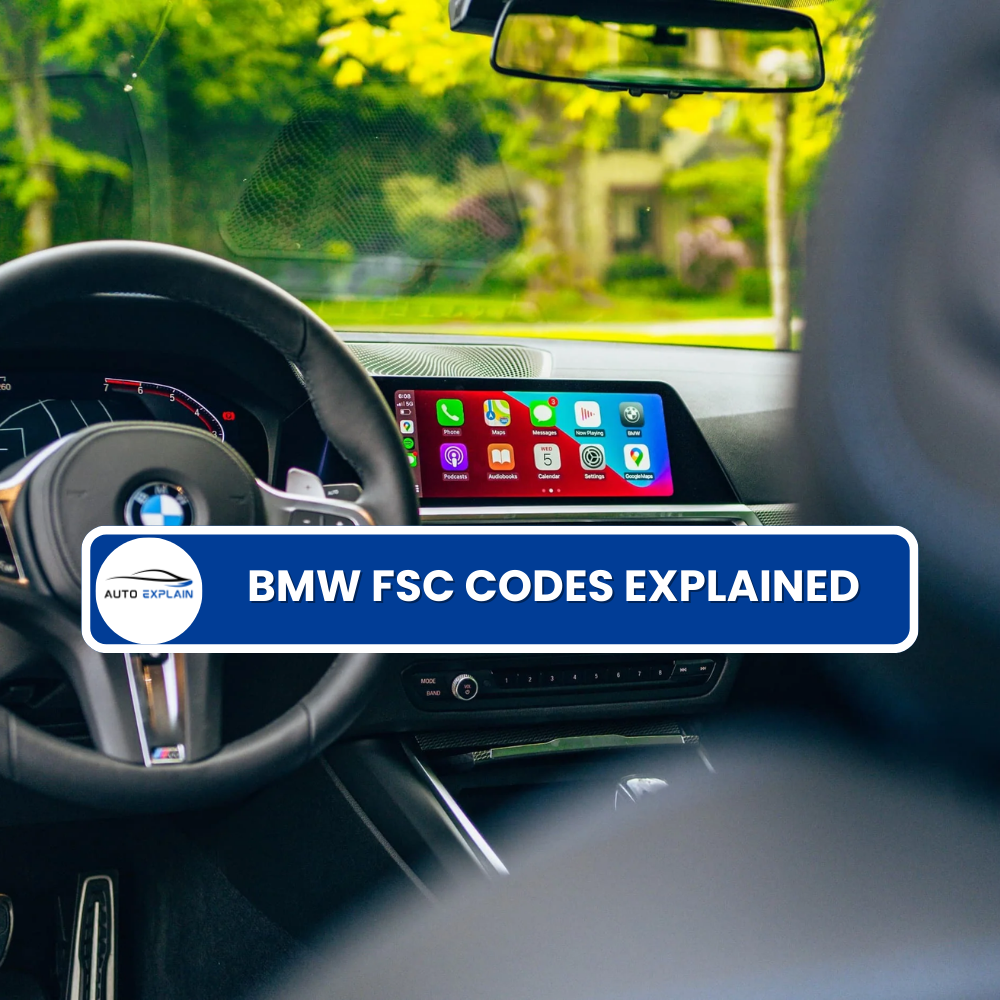
BMW FSC Codes Explained: Full FSC Code List for F-Series
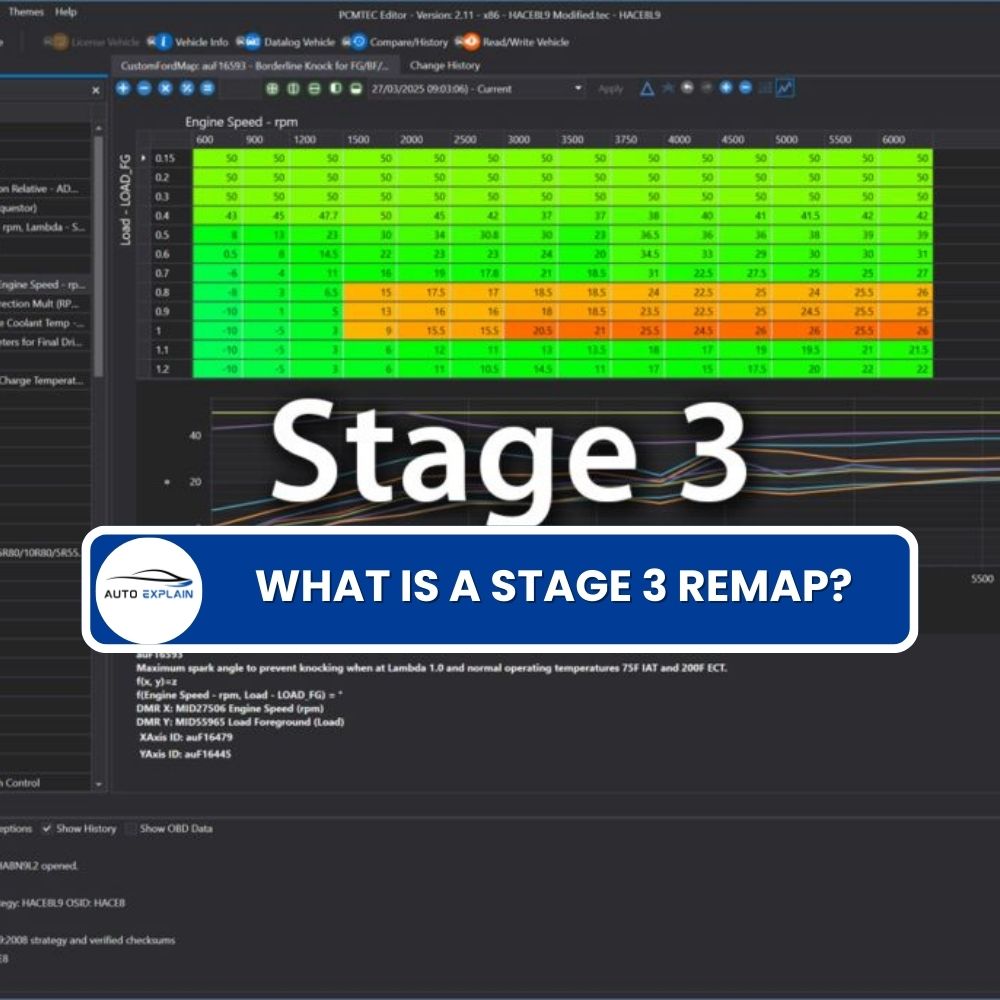
What is a Stage 3 Remap?
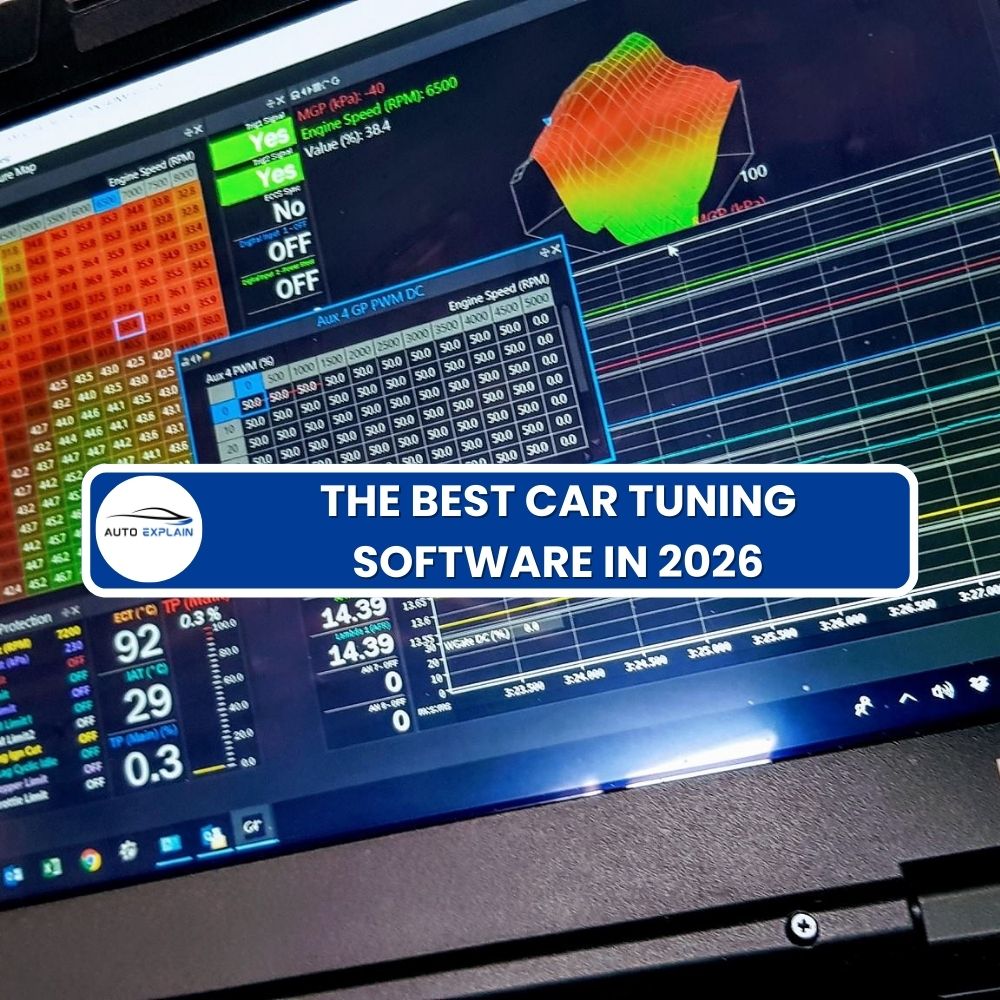
The Best Car Tuning Software in 2026: A Comprehensive Guide for Professionals




